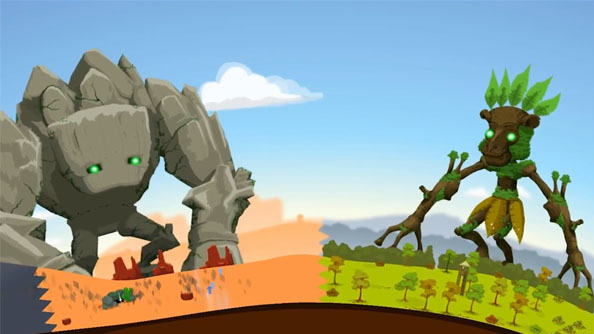The Role of the Producer in the Game Industry
Today I'm going to share some important points in which will help some people have a better understanding of what is the Producers responsibility in the Game Industry. The points that I'm going to be sharing mainly come from an article from Gamasutra called "WTF Do Producers Do All Day?", written by Kain Shin on May 31, 2009. You can view the original article by clicking on this link. I figured that it was best to use the main points of this resource on my blog since it clearly summarizes the importance of the role of the producer in the Game Industry.
- They lead the effort of getting the game finished on time and within budget.
- They can be the voice of reason that pushes to reduce the scope of the game if the design is too ambitious for the resources.
- They make schedules, minimizing chronological dependencies between tasks so that nobody is blocked and waiting on somebody else to finish their task.
- They make budgets, taking into account the salaries, application tools, and license fees that need to be paid for.
- They notice problems with workflow and come up with solutions in order to fix them.
- They are leaders, part of the management circle. A good producer can carry the team to victory, and a bad producer can cause the studio to shut down.
- They communicate the work process to the team.
- They make sure everybody knows what they should be working on at any one time.
- They adjust the schedule as needed, but also try to plan as much as they can early on so that little adjustment would be necessary.
- They can deal with the press by providing review copies and giving interviews that make people want to buy the game.
- They can be a liaison between the development team and anybody above, like the studio director or the publisher’s representative (the external producer).
- They may not necessarily solve every problem, but they do make sure that somebody is assigned to solve it.
- They may possibly pick up whatever leftover slack they can take using whatever skills they happen to have to help balance everyone’s plate (including their own) as best they can.
- They are in charge of ordering food for the team if the team needs to work late.
- They make sure there that documentation exists for tracking logistical issues such as equipment purchases and inventory status.
Technical Skills:
- Scheduling Software ( Examples: Microsoft Project and Hansoft).
- MS Powerpoint (or OpenOffice)
- MS Excel (or OpenOffice)
- Reading manuals and learning how to use new things.
Good Producer Qualities:
- They keep meetings short and on track.
- Updates the schedule once a week or more.
- Communicates in a non-intrusive manner.
- Good interviewing practices.
- Sees the big picture of any game project (salaries, financials statuses, studio strategies, etc).
- Catches problems before they happen.
- Knows a little bit about everything.
- Doesn't let things slide.
- Turns everything into a time estimate.
- Stay as late as the team.
- Is a highly empathic people person with good social instincts.
- Always trying to improve.
Bad Producer Qualities:
- Makes the team stay late for crunch and then leaves at a normal time to enjoy a regular evening for themself.
- (Pertains mainly to large projects) Usurps ownership of Game Design authority.
- Doesn’t write anything down.
- Downer Personality.
- Can’t separate talent from personality.
- Won’t fire anybody no matter how bad they are.
- Promotes nepotism.
- Assumes that crunching is a normal part of the schedule.
- Freaks the team out by constantly telling them how grim things are and leaves the team in “firefighting” mode instead of taking actions to prevent fires.
- Says yes/no to everything.
- Does Not Know The Product.
- Focuses on the Blame Game.
- Believes they have nothing more to learn.
Hope the main points of this article help you out. If interested to read the article in more detail, go to the following link.
Reference:
Shin, K. (May 31, 2009). WTF Do Producers Do All Day? Gamasutra. Retrieved from http://gamasutra.com/blogs/KainShin/20090531/84130/WTF_Do_Producers_Do_All_Day.php






